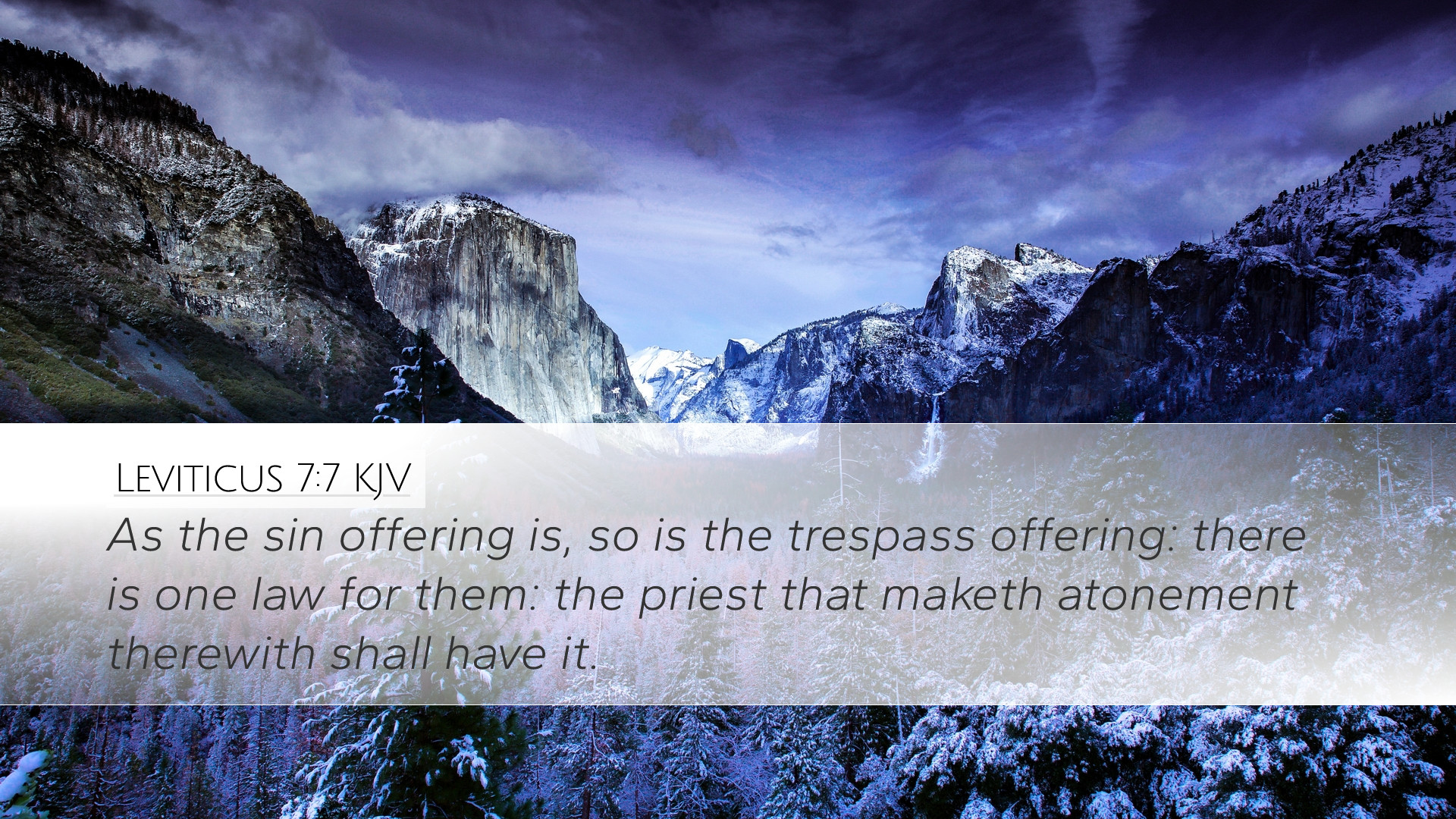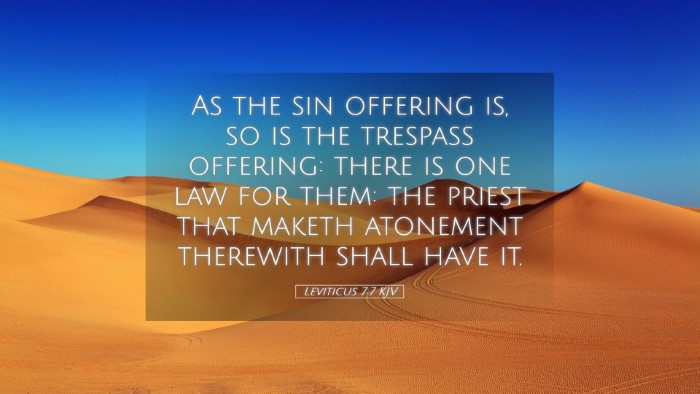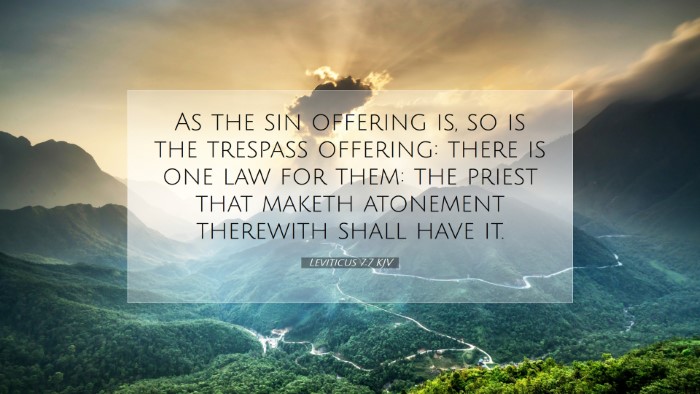Commentary on Leviticus 7:7
Verse Text: "The same law applies to both the sin offering and the guilt offering; they belong to the priest who makes atonement with them." (Leviticus 7:7, NIV)
Introduction
Leviticus 7:7 serves as a crucial verse in understanding Old Testament sacrificial laws, particularly emphasizing the priesthood's role in atonement. The verse delineates the equal status of the sin offering and the guilt offering not only in their purpose but also in the provision that ensues from them. This commentary synthesizes insights from various public domain sources, which reveal the theological and practical implications of this law.
Contextual Overview
The book of Leviticus, often viewed as a manual for Israelite worship, contains detailed guidelines about sacrifices, purity, and the priesthood. This particular chapter discusses various offerings that were central to Israel's worship practices, including the burnt offering, peace offering, sin offering, and guilt offering.
The Significance of Offerings
In exploring the sin and guilt offerings, we must realize their specific functions in the atonement process:
- Sin Offering: This offering dealt with unintentional sins and offenses against God. It served to restore the individual’s relationship with God.
- Guilt Offering: This focused more on the restitution required for deliberate wrongs or violations, representing a desire to make amends and restore equity.
Matthew Henry explains that both types of offerings are fundamentally about reconciliation—restoring the right relationship between humanity and God. The priest’s role is thus elevated, as he serves as a mediator in this sacred process.
The Role of the Priest
Adam Clarke highlights that the priest is portrayed as the recipient of these offerings, emphasizing the sanctity of his office. The priest not only officiated the sacrifices but also benefited from them:
- He bore the weight of sin and guilt on behalf of the people.
- He was provided with a portion of these offerings, establishing his livelihood and connection to the sacrificial system.
Clarke elaborates that this provision underscores God's design for sustainable ministry in Israel, wherein those who lead in worship and guidance are supported by the very practices prescribed for the people’s atonement.
Theological Implications
Both Albert Barnes and Matthew Henry underline a significant theological truth: the nature of sin requires atonement, and it cannot be overlooked. The stipulation that the same law applies equally to both offerings points to God’s consistent standard for dealing with sin:
- This law illustrates God's justice and mercy; He provides a means for restoration whether the offense is unintentional or intentional.
- It shows the serious nature of sin against God and the necessity for a response that seeks forgiveness and reconciliation.
It is noteworthy that these offerings prefigure the ultimate sacrifice of Christ, the Lamb of God who would take away the sin of the world (John 1:29). The fulfillment of these offerings in Christ magnifies their initial importance, as they not only pointed to a need for atonement but ultimately to the sufficiency of Christ's sacrifice for all sin, irrespective of its nature.
Practices and Principles for Today
For pastors, students, and theologians, the lessons gleaned from Leviticus 7:7 and its commentary resonate profoundly today:
- Understanding Sacrifice: In a culture often removed from the concept of blood sacrifice, this scripture invites modern readers to reflect on the gravity of sin and the profound cost of atonement.
- Role of Ministry: The support of spiritual leaders through the church’s sacrificial offerings is a principle that remains crucial. Just as priests were sustained through the offerings, pastors and church leaders today rely on the generosity of their congregations to continue their ministry.
- Call to Atonement: The scripture serves as a reminder that atonement is necessary for maintaining a right relationship with God. The process is rooted in both recognition of sin and the pursuit of restoration.
Conclusion
Leviticus 7:7 not only provides a foundation for understanding the sacrificial system in ancient Israel but also holds transformative significance for current Christian practice. The insights woven from the commentaries of Matthew Henry, Albert Barnes, and Adam Clarke underscore a theology of atonement, the priestly role, and the broader implications for believers today. As we reflect on these truths, we're reminded of the grace afforded to us through Christ, echoing the eternal relevance of these ancient laws in our contemporary faith experience.


